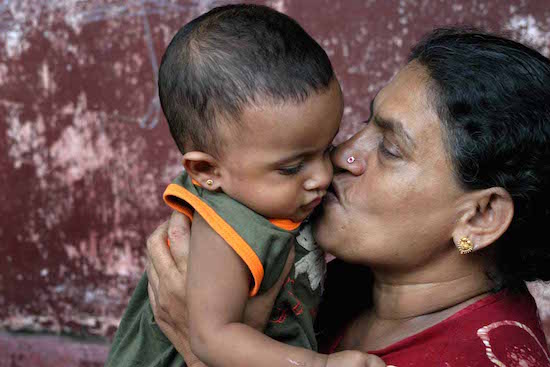UNC Charlotte Programs Aid Grandmothers Who Raise Their Grandchildren

In the sunset of their lives, many grandmothers find themselves unexpectedly raising their grandchildren. Struggles with poverty, mental illness, incarceration and physical illness can leave parents unable to provide care. UNC Charlotte researchers Julian Montoro-Rodriguez and Dorothy Smith-Ruiz are looking to help seniors deal with these mounting issues.
“I realized that grandmothers have this component of multiple problems where they don’t have the support of their own family and may feel bad about the whole situation because their own children aren’t able to take care of their grandchildren,” said Julian Montoro-Rodriguez, Director of the University’s Gerontology Program.
Montoro-Rodriguez began his research and programs to assist custodial grandmothers while at California State University. With his move to UNC Charlotte late last year, he is building on his work. Montoro-Rodriguez has written on intervention programs to improve custodial grandmothers’ parenting skills and has a forthcoming publication on the impact that coping resources have on these non-traditional families.
“If we could train grandmothers to increase their informal support and have an action plan for them to sit down with someone and plan out activities, would they build the skills and knowledge needed to find and request help?” Montoro-Rodriguez said.
Studies show grandmothers who are custodial caregivers experience higher levels of stress compared to grandmothers who are not raising their grandchildren.
“It is a stressful situation for the whole family,” said Montoro-Rodriguez. “Grandmothers are so overwhelmed because they have competing demands, with their children, grandchildren and their own personal needs. The temptation for them is to give up.”
Montoro-Rodriguez has developed programs that alleviate stress for grandmothers. The programs focus on refreshing parenting skills for grandmothers while implementing planning and self-management skills. These initiatives bring grandmothers up to date with methods of communicating with grandchildren and professionals.
“We have this framework that uses selection, optimization and compensation,” he said. “This model allows grandmothers to select some of their priorities and optimize the best way to get them accomplished. This is tailored to the needs of the person and it gives them a skill that they can implement themselves.”
UNC Charlotte researcher and Africana Studies professor Dorothy Smith-Ruiz is also studying the issue. Her research focuses on African American family life and the effect of structural issues on families over time.
Her research areas include depression, physical health, social support, incarceration, religious views, needs assessment, and family values. Recently, she completed a study on needs assessment of grandmothers in Charlotte in collaboration with the Department of Health and Human Services. The results will be used to advise Social Services when developing programs to assist grandparents.
“African American grandmothers have played a major role in the socialization of children and the stabilization of families,” Smith-Ruiz said. “The strength and resilience of African American grandmotherhood is imbedded in her ability to withstand economic and social challenges, her ability to perform multiple roles, her unconditional love of family, and her strong religious beliefs.”
Despite the unique circumstances of caregiving, financial hardships, health problems, and lack of social support, African American grandmothers have been a steady and supportive connecting link for their grandchildren, she said.
“Although the majority of grandparents took pleasure in caring for their grandchildren, some reported being overwhelmed by the burdens of childcare responsibilities and did not enjoy the experience,” she said. “In spite of their mixed feelings about caregiving, grandmothers generally assumed care of their grandchildren because of a deeply felt sense of obligation, the need to keep their grandchildren out of the system, the need to control proper upbringing, and the need to care for others.”
She is particularly concerned about the impact of incarceration on families headed by grandmothers. The drastic increase in incarceration in African-Americans since the 1970s has caused researchers and scholars to question its affect on families and the well-being of children.
Smith-Ruiz’s forthcoming book will analyze how the recession has changed the structure of African American families, many of which are headed by grandparents. The book will be published in 2016.
by: Michael Eccles
Photo courtesy of Wikimedia Commons: https://upload.wikimedia.org/wikipedia/commons/9/90/Sri_Lankan_woman_and_child.jpg